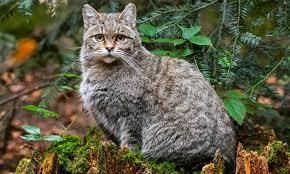The UK is recognized as one of the most nature depleted places on earth. never the less, there is wildlife in the shadow of humans. A very wide range of wildlife has been lost, as humans have not left the space – this is causing us issues, not least because there are no apex predators left.
Wild boar, however, were accidently released – they were bred for meat, and between a variety of escapes and intentional released populations, a wild population has been established in the UK. Domestic pigs are descended from wild boar – it is thouoght that they were domesticated twice, once in the near middle east around 8500 years ago, and again in China around 6500 years ago (though it should be noted that these dates are still pretty unclear. 8500 years is not a long time in genetic evolution, and as such they are still capable to interbreed, even though there is a significant difference in how these two groups live.
There is an estimated 2600 wild boar living in the UK. The largest populations are listed below, though it does not account for all of them
- Forest of Dean: This area has the most established and largest wild boar population in the UK. The population is estimated to be around 1,200 animals.
- Kent/East Sussex: This area has a population of 250-300 wild boar.
- West Dorset: This population is estimated to be over 50 animals.
- North Devon: This area has a smaller population, estimated to be between 50 and 100 wild boar.
Wild boar are incredibly important for the health of forests – wild boar turn soil in their search for roots and tubers, and this is perfect for the growth of new seedlings. Boar rootling areas are often full of tree saplings and shoots growing together. It is something that has been missed for a very long time, and the health of forests that the boar returns to is greatly improving.
The area that I live in, has a great deal of army land, and therefore, I believe that the area could support hundreds of boar, if not more.
This individual boar, is likely to be a young roaming male, and usually, the first visitor does not settle within an area, however, females also roam, and should a male and female meet, they are likely to become a breeding pair, and at that point the population can grow fast as a breeding pair (when they have some domestic pig genes in them) potentially having 3 litters of 10 or more a year.
Will a breeding population be established around here? It is still for the time being, chance, however at this breeding rate, it is quite conceivable for boar to be back across the UK within the next couple of decades. Pure wild boar would be better, however adaption back to living in the wild will likely slow their breeding rate relatively fast.












